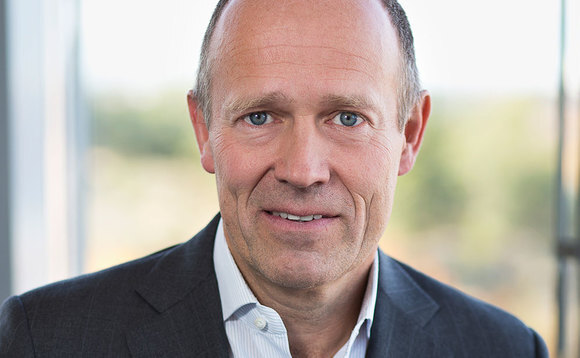
Altor's Harald Mix discusses move to public investments

Ahead of the unquote" Nordic Private Equity Forum on 5 May, Harald Mix, founder and managing partner of Altor Equity Partners, speaks to Mikkel Stern-Peltz about investing in public companies and where to find value in the Nordics
Mikkel Stern-Peltz: Given the relative health of the Nordic economies (increased corporate performance and buoyant public markets), where is Altor seeking out value?
Harald Mix: It's fair to say that throughout 2014 and the beginning of 2015 we've seen a very healthy public exit market, which we haven't seen for a number of years. At the moment we have a situation where the public market is extremely competitive for what I would call attractive, stable, healthy assets. Furthermore, we are seeing an increase in activity from both trade and private equity buyers. But I would say it's challenging to sometimes compete with those all of those potential players.
At the moment in the public market, if the long-term multiple is 10x EBITA then the market may currently value it at 12x EBITA. Thus you probably have a couple of multiple points more in the public market than there has been historically but, on the other hand, you also have record-low interest rates.
I'm part of a group of people who think plentiful cheap debt is not necessarily the best thing in the long run for private equity returns. Historically, there has been a strong inverse relationship between lots of leverage and private equity returns. So, if you look at Altor specifically, we've generated roughly $10 for every $1 we've invested in the past 12 months. I think that also tells you something about how we currently see the market as being a little bit frothy, from a pricing point of view.
When I look at the current market conditions, I think it's probably been a better market to exit than necessarily to enter, but we have made a few investments. Over the past 12 months, we've invested roughly €250-300m – we've done a couple of public minority investments, and we made an investment in Denmark in a company called Norican, which is a capital goods producer. We've tried to find companies, sectors where we think there is still some caution in the market in general, and European industrial machinery is a sector that has been quite depressed. Investment levels haven't quite picked up yet in Europe, so we thought that was a very interesting sector. We've also been looking for companies with both recovery potential but also in terms of margin improvement potential.
MSP: Two of Altor's last three investments have been public minorities – what sets Altor apart from activist investors in this regard?
HM: It's an option we've had from fund three to fund four, and it's something we've done on four occasions. You could say it's a bit strange that public minorities should be interesting in a public market that is currently at relatively high multiples from a historical point of view. But if you compare the transparency in a well-orchestrated private equity auction compared to a relatively less-researched public entity, sometimes I think you'll find there's typically more hidden value in a public company than in a private arena for a very high-quality business.
In the context of the Nordic market, if you're accumulating a significant stake and become the largest investor, you're obviously operating from a public company board. In general we try to positively influence change in terms of driving for growth, efficiency improvements etc in all of our investments, and we think that's also possible to do in a public setting.
Typically we'd rather own 100% but sometimes, if you can't get to that because it becomes too expensive, if we can achieve similar returns in a public setting that's not necessarily a bad thing. Particularly in companies that are relatively unlevered, if you end up paying a 40% premium on a public company that basically means you've borrowed to pay that premium. Effectively you can say there is not a lot more upside on the equity you had before, except you end up having to also make a return on that premium you've borrowed.
Investing in public minorities is not a core strategy we have, but we have a carve-out in the fund structure that allows us to do that. It represents 12.5% of the fund, so it's not the core of what we do, but from time to time it's a very useful additional tool in our toolbox.
Similarly, we also have a distressed debt mandate. Altor may be different from other funds, as we have longer term funds [13+2 years, introduced with Fund III] which allow us to take more long-term bets, and also having this increased flexibility in how to enter, we think, is an advantage to us. Depending on market conditions we can find different ways to invest.
MSP: Will we be seeing more public minority investment from Altor in the future?
HM: Yes. I think from time to time there are situations where effectively the public markets have more of a 12-month forward-looking time horizon, but if you have a company where you think there is a significant three- to five-year improvement opportunity, the public market doesn't necessarily fully value that opportunity.
In a private sale, sometimes competition means you end up having to pay a lot of that three-year potential, which gets arbitraged away to the seller.
Also, if you have companies such as Eltek, which when we bought it had multi-divisional activity, with one heavily loss-making division and one very attractive core business, but did not have a lot of research coverage, the market tends to be a bit simplistic by only looking at pure face multiple, whereas in this situation it makes a lot more sense to look at the sum of all parts.
Around of a fifth of Fund IV, €250m, is available to invest in public minorities, and about €80m of that is committed so far.
MSP: There has been some talk among Nordic private equity players that we may be starting to see an asset bubble forming in the region's private equity market – what is your view?
HM: Looking at current average multiple paid, compared to history, those multiples imply that the future is going to be bright in terms of profit development. Since we have been divesting to investing 10:1, we have maybe been on the cautious side in how we see the market currently. It is also challenging to try and read the current low-interest rate environment, but I think if you look at history, abundant availability of cheap debt tends to correlate with lower returns in the future.
It could also be that we are completely wrong and this is a great time to buy because markets are going up.
Looking at the economic recovery and profit outlooks on fundamentals, we think 2015 is going to be a good year in terms of overall fundamental earnings growth.
I think we will see pretty healthy activity going forward and, at some point, there will be corrections in public markets and then private equity will become, relatively speaking, more competitive.
One thing our LPs are telling us is that there is no urgency to deploy capital. Maintain discipline – don't get overly caught up when deploying capital and make sure to invest capital wisely.
To hear Harald Mix speak as part of the Private Equity Leaders' debate at the unquote" Nordic Private Equity Forum on 5 May in Stockholm, click here to register your place and find out more information.
Latest News
Stonehage Fleming raises USD 130m for largest fund to date, eyes 2024 programme
Sponsor acquired the public software group in July 2017 via the same-year vintage Partners Group Global Value 2017
Stonehage Fleming raises USD 130m for largest fund to date, eyes 2024 programme
Czech Republic-headquartered family office is targeting DACH and CEE region deals
Stonehage Fleming raises USD 130m for largest fund to date, eyes 2024 programme
Ex-Rocket Internet leader Bettina Curtze joins Swiss VC firm as partner and CFO
Stonehage Fleming raises USD 130m for largest fund to date, eyes 2024 programme
Estonia-registered VC could bolster LP base with fresh capital from funds-of-funds or pension funds









